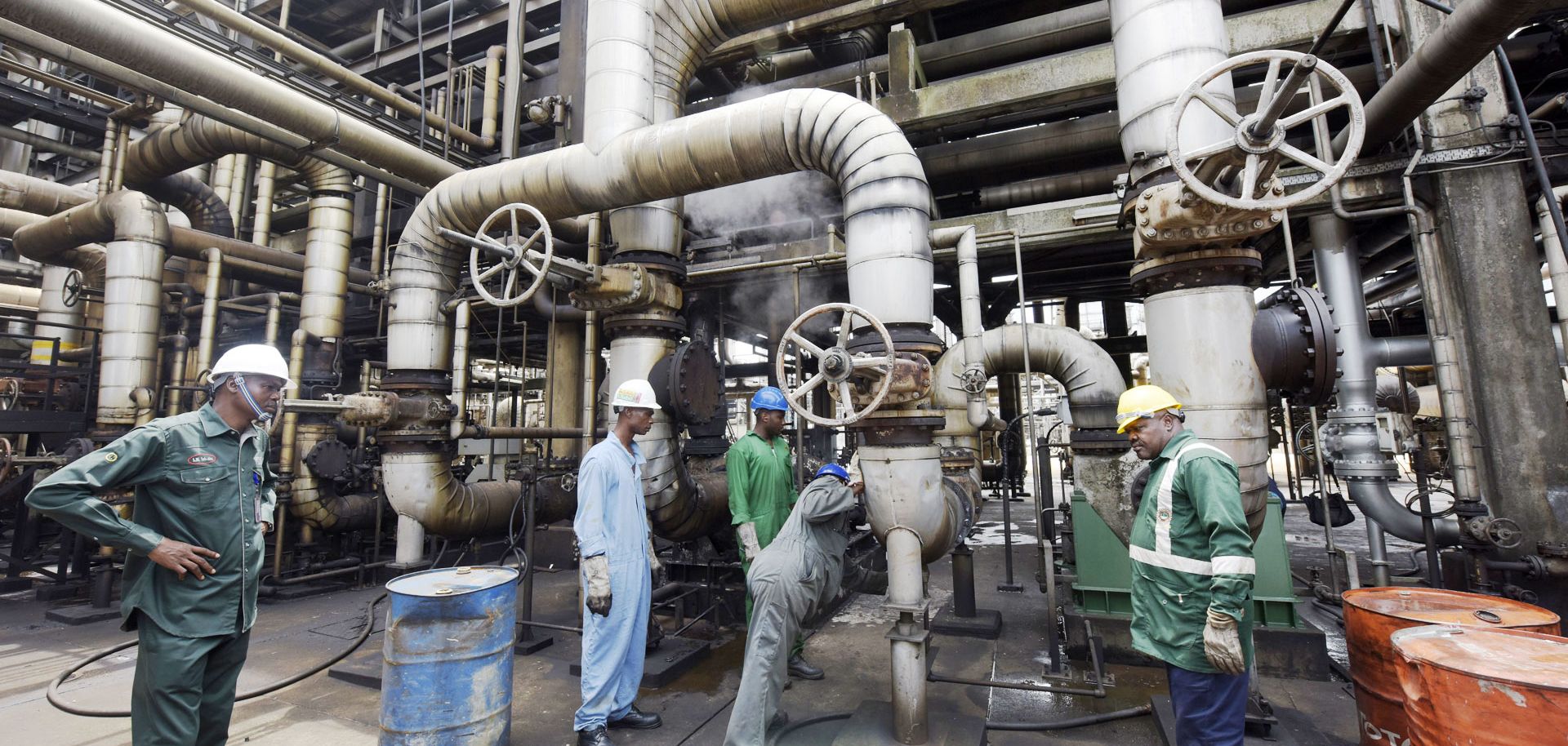ASSESSMENTS
Reconciling Expectations and Reality in the Niger Delta
Nov 15, 2016 | 09:00 GMT

(PIUS UTOMI EKPEI/AFP/Getty Images)
Summary
Nigeria has a new plan to overcome its economic doldrums. On Oct. 27, President Muhammadu Buhari's administration unveiled the "Seven Big Wins," a roadmap designed to enhance stability, transparency and growth in the oil industry, the country's most profitable sector. The government in Abuja hopes that after years of suffering the effects of low oil prices, Nigeria will be able to restore its oil revenues by increasing production. But to reach the administration's ambitious production targets (2.2 million barrels per day by the end of the year and 2.8 million bpd by 2019), Nigeria's oil industry will first have to improve its security situation.
Militancy in the Niger Delta region, the epicenter of Nigeria's oil industry, has surged over the past year. Since January, groups such as the Niger Delta Avengers have launched several devastating attacks against the country's oil and natural gas infrastructure in retaliation for perceived injustices wrought against the region. As a first step toward resolving their grievances and restoring order to the region, Buhari met Nov. 1 with stakeholders from the Niger Delta, including state governors, local chiefs and supposed representatives of the militant groups. But despite its aims to bring peace to the delta, the meeting and its aftermath underscored the divisions in the region that will impede the government's plans there.
Subscribe Now
SubscribeAlready have an account?
